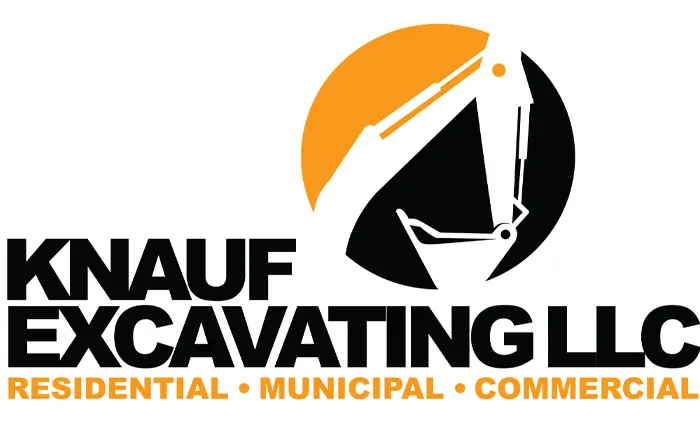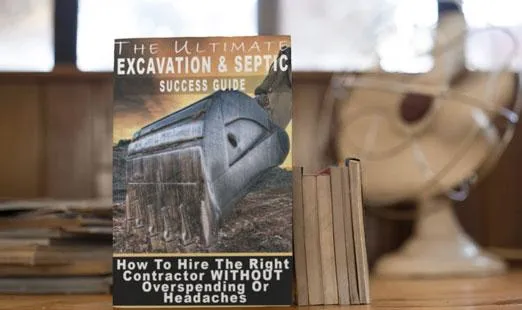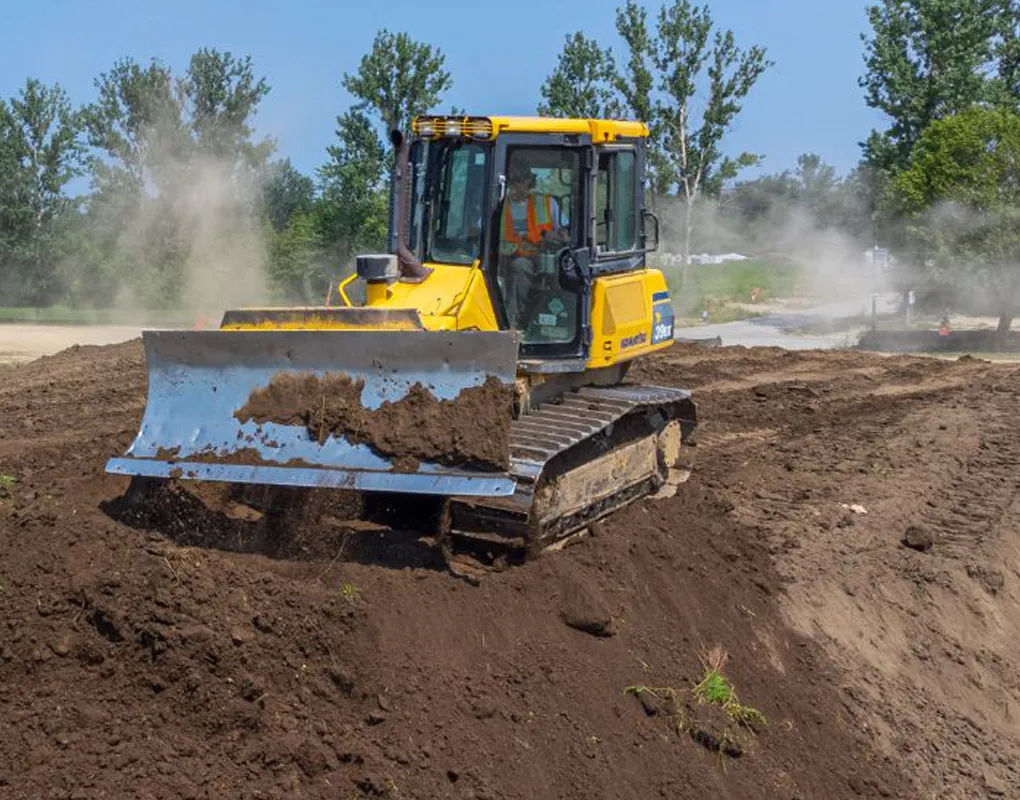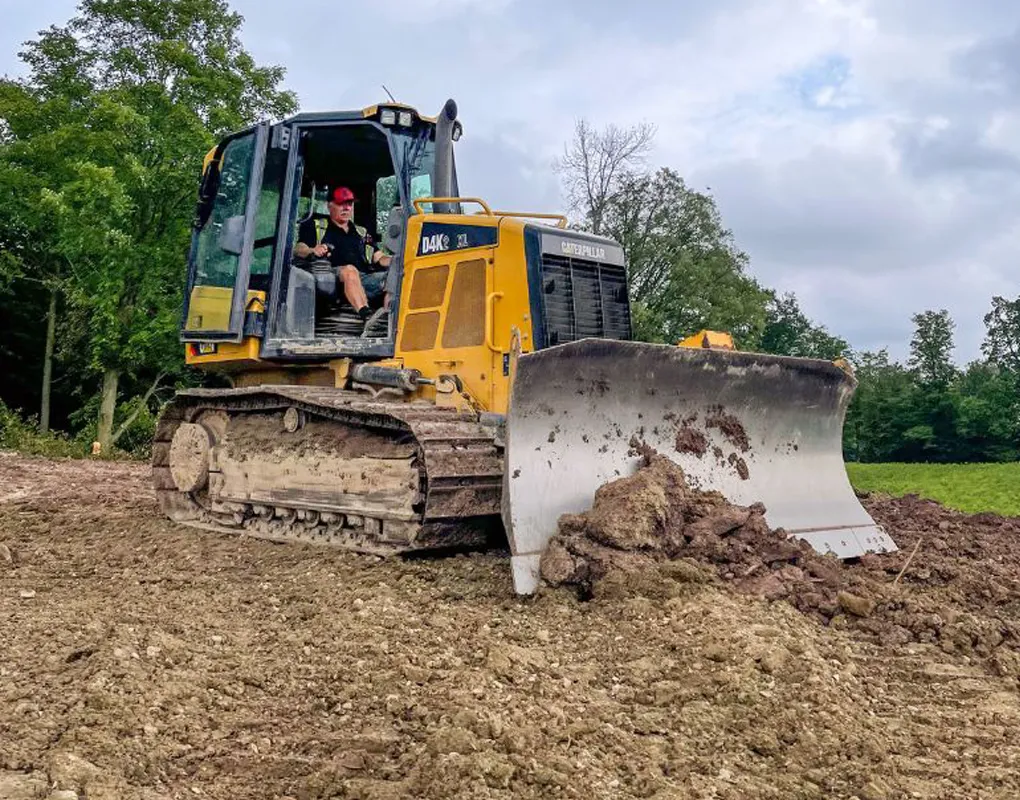
Serving Wisconsin Counties: Marathon, Oneida, Villas and Lincoln Counties
Dozer Work near Marathon County, Wisconsin
Knauf Excavating LLC is Committed to superior quality and results!

AVOID COSTLY MISTAKES:
Do NOT hire an excavating contractor without first reading our free guide:
The ULTIMATE Excavation & Septic "Success Guide."

Dozer Work near Marathon County, Wisconsin, Wisconsin
If you’re planning to shape raw ground into a buildable, drainable, and drivable site in central Wisconsin, dozer work is the engine that turns vision into reality. Think of it as the heavy-duty pencil that sketches your final grade across the landscape. With the right operator and machine, trees, stumps, brush, and high spots make way for driveways, house pads, farm lanes, and ponds that hold their banks and shed water. In Marathon County’s mix of glacial soils, sandy pockets, silty lowlands, and four-season weather, the difference between “good enough” and “built to last” is thoughtful planning backed by precise blade control.
How Can We Help?


The Benefits of Dozer Work near Marathon County, Wisconsin
Proper dozer work saves money because the site ends up right the first time. Accurate cuts and fills mean fewer truckloads, fewer change orders, and foundations that sit on uniform subgrade. Smooth crown and ditch lines move water away from buildings and roads, reducing frost heave, spring ruts, and potholes. Clearing and grubbing done with a wide blade keeps root mats intact so the subsoil stays stable. When you combine that with thoughtful topsoil stripping, you preserve fertile material for final landscaping and avoid importing expensive soil later.
Dozer work also speeds schedules. A single machine can push, spread, compact, and shape, coordinating with excavators and trucks to keep material moving. That efficiency lowers labor hours and lets other trades in earlier. Safety improves too: clear paths for deliveries, sightlines at drive entrances, and stable work zones around foundations keep crews and homeowners safer in every season.
Benefits of Hiring a Dozer Work near Marathon County Specialist
Hiring locally keeps your plan aligned with county grading rules, driveway permits, and stormwater expectations. A seasoned operator who works Marathon County daily knows how spring thaw softens haul roads, how to bench a slope in loamy soil, and when to lay geotextile under a driveway base. That insight prevents surprises that cost time and money.
A local team brings the right iron to the right job. Not every site wants a huge crawler. Smaller, agile dozers shine in tight lots and lake properties; heavier machines earn their keep on long road cuts, farm pads, and large subdivisions. Matching blade size, grousers, and ground pressure to the site protects wetlands, lawns, and existing improvements.
Finally, hiring a specialist means transparent production rates, documented compaction passes where needed, and finish grading that meets laser or GPS benchmarks. You get a site that drains, a pad that stays put, and a surface ready for gravel, concrete, or seed.
See Our Excavation & Septic Services

✔️ Commercial Excavation
✔️ Residential Excavation
✔️ Swimming Pool Excavation
✔️ Basement Digging
✔️ Basement Backfill
✔️ Shoreline Restoration
✔️ Driveway Construction
✔️ Municipal Excavating
✔️ Snow Plowing Service
✔️ Demolition
✔️ Large Pond Construction
✔️ Small Pond Construction
✔️ Dozer Work
✔️ Septic Inspections
✔️ Septic System Pumping
✔️ Septic Installs Traditional Systems
✔️ Septic Tanks - Aerobic Systems
Quality Services Launched FAST!

✔️ Septic Tanks - Plastic/Poly
✔️ Septic Tanks - Concrete
✔️ Drain Field Replacement
✔️ Forestry Mulching
✔️ Grading, Lot Clearing
✔️ Retaining Walls
✔️ Sewer Repairs
✔️ Drainage Systems
✔️ Concrete Flatwork
✔️Driveways, Sidewalk, Foundations
✔️ Foundation Repairs
✔️ Full Site Preparation
✔️ Trenching
✔️ Utilities Trenching
✔️ Grade Shed Pad
✔️ Site Construction
What Are You Waiting For?
The Process for Hiring a Dozer Work near Marathon County, Wisconsin
Step 1: Site Walk and Goals. Share your survey, stakes, or a simple sketch. Walk the property and mark tree lines, setbacks, utilities, and access points. Clarify the final use: home, shop, barn, lane, or pond.
Step 2: Soil and Drainage Review. Probe subgrade conditions, identify organics, and note water flow. In Marathon County, it’s smart to plan for spring melt and summer storms. Discuss swales, crowning, culverts, and erosion control.
Step 3: Scope, Phasing, and Budget. Define clearing limits, stripping depths, cut and fill targets, and export/import needs. If trucks will supplement pushes, schedule haul windows and staging areas. Get a written scope with line items and allowances.
Step 4: Permits and Utilities. Confirm driveway permits, shoreland rules where applicable, and call in locates. In rural areas, flag field tiles, wellheads, and septic areas before the first push.
Step 5: Execution. Mobilize the right dozer, coordinate with excavators and trucks, and begin with erosion control. Strip, stockpile, cut, fill, compact, and shape to benchmark elevations. Communicate daily progress and adjust for the weather.
Step 6: Finish and Stabilize. Smooth grade, place base course, set culverts, and seed or mulch exposed areas. Provide as-built notes or stakes for future trades.
Common Dozer Tasks in Wisconsin Sites
Land and brush clearing with minimal ground disturbance
Road and driveway building with crowned surfaces and ditches
House, barn, and shop pad construction with tight tolerances
Pond berm shaping and shoreline reinforcement
Timber landing, farm lane, and field edge improvements
Finish grading and topsoil placement for landscaping
Planning Tips for Dozer Work near Marathon County
Season matters. Frozen ground can support heavy pushes, but finish grading waits for thaw. Spring is great for drainage shaping when water reveals natural paths. Summer opens long days for road and pad work. Fall is ideal for final grades and seeding before snow.
Material choices matter too. Quality base rock over fabric builds long-lasting drives. Stockpiled topsoil saves money and grows healthy lawns. When in doubt, prioritize drainage first: a site that sheds water gracefully resists rutting and frost damage.
How to Compare Bids and Choose Confidently
Ask each bidder to show production rates, machine sizes, and a clear weather plan. Request references for similar soil and slope conditions. Look for GPS or laser capabilities when tolerances are tight. Insist on communication you can trust: daily check-ins, photo updates, and straightforward change orders.
Hours: Mon-Fri 7AM-5PM
Extended hours by appointment only.
Address: 1250 W. Campus Dr. Wausau, Wisconsin 54401
All rights reserved | Client Support Area